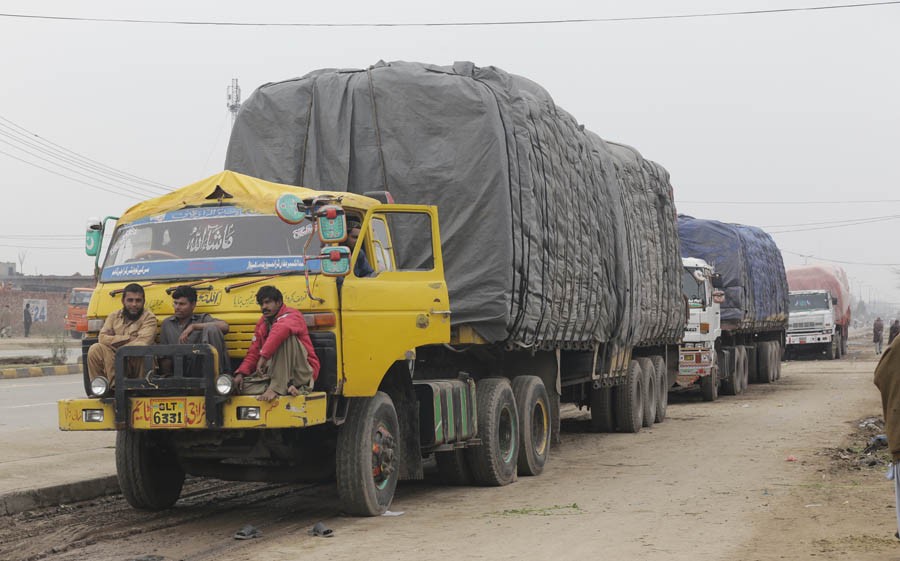
Trade between India and Pakistan is the first casualty in a crisis situation

As a protest after the Palwama attack, India withdrew the Most Favoured Nation (MFN) status it had granted to Pakistan in 1996 and slapped a 200 percent duty on the import of items such as cement from the country.
Pakistan, on the other hand, never granted the MFN status to India. Instead, it moved India from a positive to a negative list regime. Under the positive list formula, only the items mentioned on the list were allowed for import from India whereas the existing negative list carries only the items whose import is prohibited from the country.
The number of items on the negative list is 1209, which means all items other than these can be legally imported from India. Another condition imposed by Pakistan is that only 137 items can be imported via land route while all others can reach through the sea route.
After the discriminatory imposition of 200 percent duties, Pakistani products destined for India have become nonviable for importers. Though Pakistan has not retaliated by taking restrictive measure like increasing the number of items on the negative list, it seems quite likely that it would also take some steps to affect the Indian exports. It is worth noticing that there is no announcement to stop mutual trade but to withdraw concessions, etc.
Anis ul Haq, Secretary All Pakistan Textiles Mills Association (APTMA), Punjab Chapter, tells TNS that consignments of cement, gypsum, dates, etc, leaving for India have been stopped after the withdrawal of MFN status by India. "The 200 percent duty cannot be justified under any circumstances. India has high demand for finished cement and gypsum and its construction industry is bound to suffer but their businessmen can do little in this situation."
Haq says the textile industry of Pakistan is not hugely affected because it does not export much from India, "It has been importing yarn and cotton from there, especially due to successive cotton crop failures. Today (Thursday) around half a dozen trucks of Indian yarn have moved into Pakistan from Wagah border after a brief suspension."
Regarding the import of cotton, he says, it will depend on the health of the cotton crop this year. Haq thinks imports from India have not suffered directly because Pakistan has so far not taken a restrictive step in this regard. "The local cement industry that has undergone expansion, keeping in view the huge Indian market, will definitely bear the brunt," he adds.
Formal bilateral trade between Pakistan and India hovers around $2.5 billion with Indian exports taking a share of $2 to $ 2.2 billion and Pakistan between $300 to 400 million. The informal trade carried out via smuggling or through a third country is estimated to be much larger than formal trade.
Muhammad Shahid, a trader based in Lahore, tells TNS that there is a negative sentiment among local businesses about the invasion of Indian items on the negative list in our markets through informal routes. "These items are exported by India to a third country, such as Dubai, from where these are re-exported to Pakistan after changing labels and details about the country of origin," he informs.
Also read: Editorial
Shahid explains that finished goods are mostly put on the negative list and raw material import from India is encouraged to protect the local industry but such goods have flooded our markets. "Traders are planning to boycott these items and also blacklist businessmen dealing in the Indian goods. This measure will be in response to the imposition of 200 percent duty on Pakistani imports by India."
Products flooding Pakistani markets include shampoo, hair oil, cosmetics, clothes, dairy products, confectionary items, electronic products, jewellery, and generic medicines, etc.
An official from the Customs department, who does not want to be identified, says it is not difficult to detect a product’s origin, keeping in view the advancement in testing technology and industrial labs’ capability. "But, unfortunately, the enforcement is weak, resulting in the flow of prohibited Indian products through third countries. Many a time, these products arrive here with the support of departments supposed to intercept these."
He says there is a demand, following India’s decision on Pakistan’s MFN status, to launch a crackdown against such products. "This will hurt many businesses here that have flourished due to regular supplies of these goods."